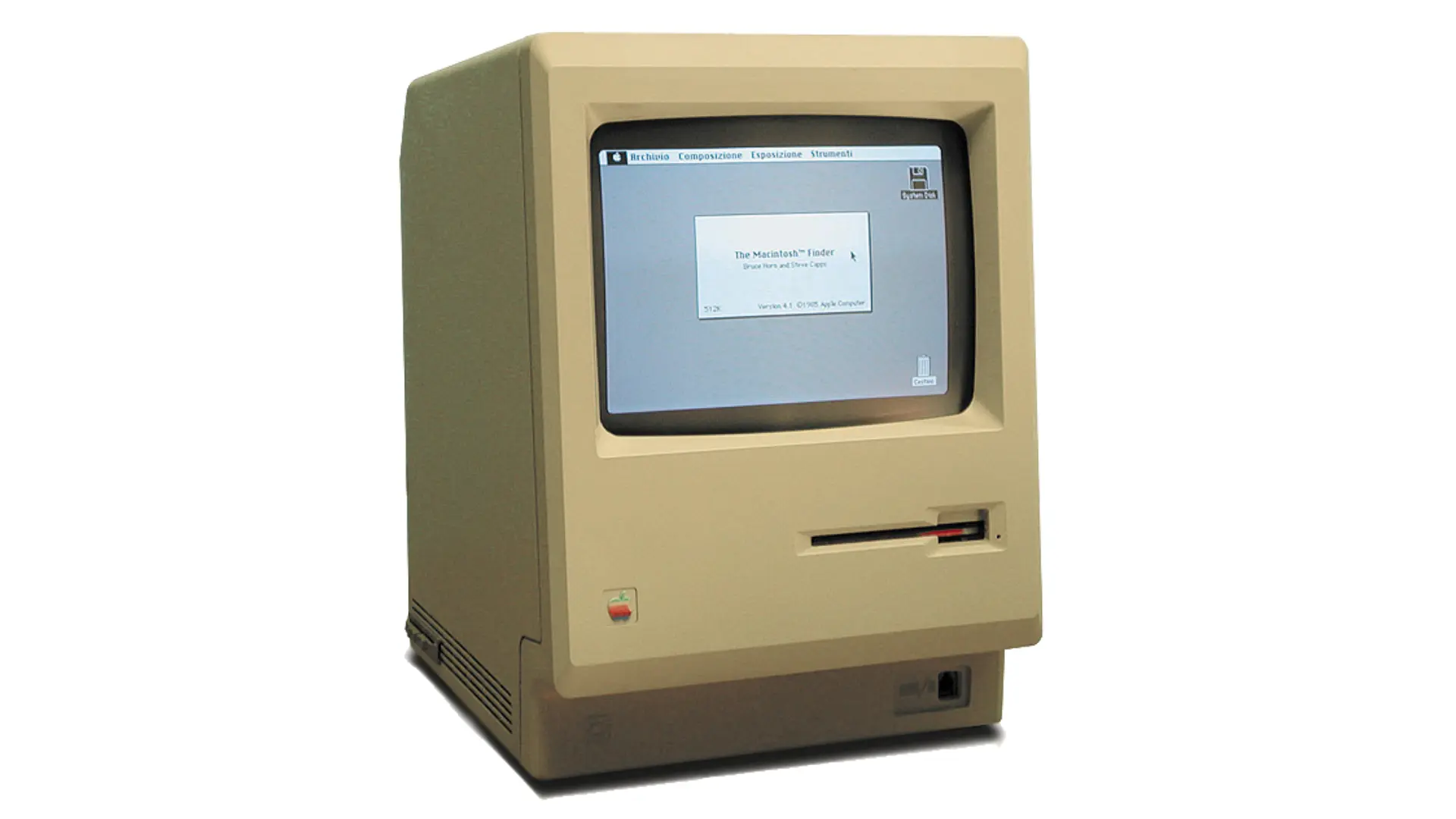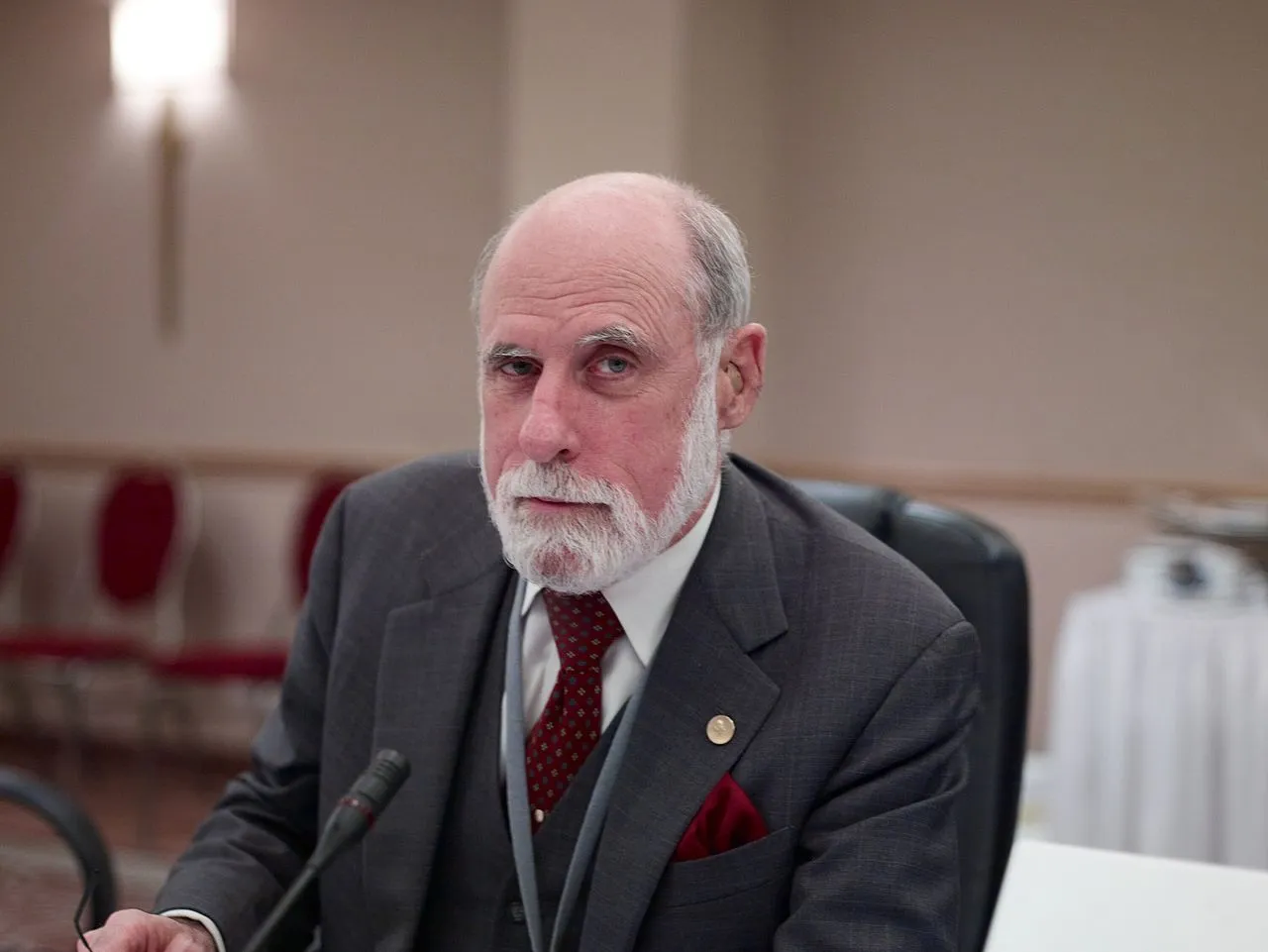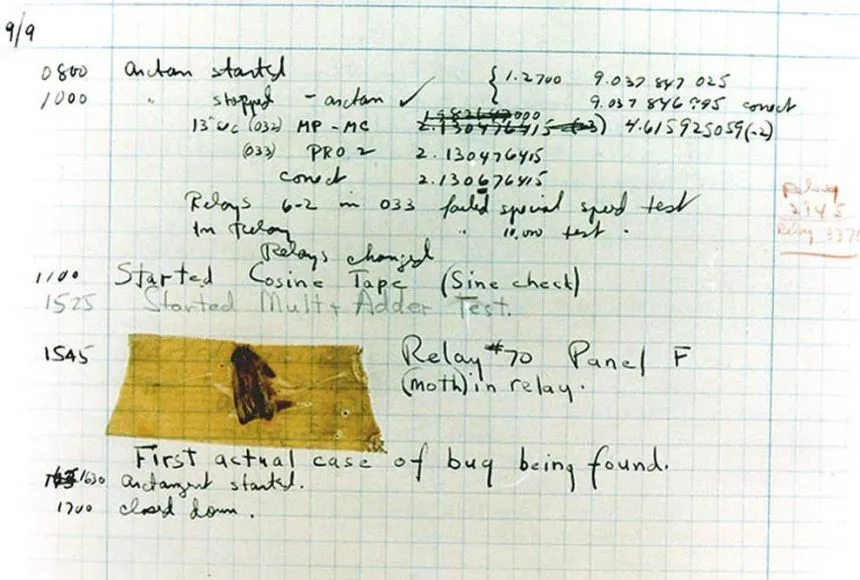
A holiday is an opportunity to pay tribute to a specific event and realize its significance. Everyone knows classic holidays such as Christmas, New Year, Easter, Independence Day of Ukraine, and others. However, few people are aware of important dates in the IT industry, despite its significant role in the modern world. The Cityhost team decided to help correct this oversight by creating a convenient "IT Specialist Calendar" that will help better understand the field of information technology.
January
January 1 — Internet's Birthday. On this day in 1983, the ARPANET network protocol was changed from NCP to TCP/IP, defining the modern architecture of the Internet and laying a solid foundation for its future development.
January 7 — Programmer's Day. We constantly encounter the fruits of programmers' labor since nearly every electronic device (from remote controls to industrial machines with software control) has passed through the hands of these specialists.
January 23 — Release of the first public version of Java. The official announcement of the Java programming language took place on May 23, 1995, at the SunWorld conference, and its first public version (JDK 1.0) was released on January 23, 1996. It is widely used in web applications, mobile apps, embedded systems, and other programming areas.
January 24 — Introduction of the first "Macintosh" computers (Mac). On this day in 1984, Apple's founder Steve Jobs conducted an extensive presentation, unveiling the first commercially successful personal computer. It featured a graphical user interface and a mouse, replacing the standard command-line interface of that time.

First "Macintosh"
January 28 — International Data Privacy Day. On January 28, 1981, the Council of Europe signed the Convention for the Protection of Individuals with regard to Automatic Processing of Personal Data. The document established crucial principles, specifically the legality and security of obtaining, storing, and processing user data.
Also Read: Inventions of Ukrainians in the IT industry
February
February 4 — Facebook's Birthday. In 2004, Facebook began operating as a platform for students at some US universities, and today it is the world's largest social network (as of March 2023, used by 2.94 billion people).
We recommend stocking up on popcorn and watching the movie about the creation of Facebook — "The Social Network" on this day.
February 6 — Safer Internet Day. In 2004, Insafe and INHOPE organizations, together with the European Commission, introduced Safer Internet Day to raise awareness about online safety.
February 14 — Computer Specialist Day. On this day, when Cupid shoots arrows of love, IT professionals celebrate their professional holiday. The history dates back to 1946, when the first electronic computer ENIAC I was introduced to the world. This revolutionary invention marked the beginning of a new era in computing technology.
Although Computer Specialist Day does not have official status, it is joyfully celebrated in Ukraine and many other countries. This holiday unites everyone involved in the world of information technology: programmers, system administrators, web designers, gamers, and just regular PC users.
February 15 — Birthday of Niklaus Wirth. In 1970, this renowned Swiss programmer created the Pascal programming language, playing a significant role in the development of programming.

Niklaus Wirth
February 20 — Release of Python. Although the development of the programming language began in the late 1980s, its first version was released on February 20, 1991. Guido van Rossum spent many years working on creating "Python"… and it's no wonder, as it is now used in web development, scientific computing, artificial intelligence, data analysis, and other areas.
February 24 — Steve Jobs's Birthday. On this day in 1955, the co-founder of one of the most successful technology companies, Apple Inc., was born. Thanks to him for the innovations (iPhone, iPod, iPad, MacBook) that have changed and continue to change the world.
February 28 — Network cable patented in the USA (1956). This allowed connecting multiple computers into a local network, solving the problem of information transmission between them.

March
March 14 — International Pi Day (3.1415926...). The number π (pi) is a mathematical constant representing the ratio of a circle's circumference to its diameter in Euclidean space. On this day, you can give your colleague (friend, acquaintance) a thematic pie, solve a few puzzles, or simply send a cute picture.
March 31 — World Backup Day. A good reminder of the importance of data protection and the security of systems and computers. It started being observed in 2011 when a Reddit user shared the loss of a hard drive and wished someone would remind him of the importance of creating backups.
April
April 4 — Webmaster Day. This specialist is responsible for managing one or more internet projects. Some webmasters do all the work independently (develop and set up the site, create and publish content, solve problems), while others manage a team.
The date is not chosen randomly, as it resembles the common error 404 (Not Found) that appears when a server lacks the corresponding page.
April 4 — International Internet Day. The purpose of this holiday is to remind us of the possibilities of new technologies and their importance in our daily lives. The patron of the united computer network system is Isidore of Seville, who created the first-ever encyclopedia, "Etymologiae."
April 4 — Anniversary of Microsoft's founding. Microsoft was officially founded by Bill Gates and Paul Allen on April 4, 1975, in Albuquerque, New Mexico. The company was initially supposed to be named "Allen and Gates," but the name was later changed to the familiar "Microsoft."
April 26 — World Intellectual Property Day. The goal of the holiday is to emphasize the role of intellectual property in promoting innovation and creativity.
April 27 — World Designer Day. This is a professional holiday for people who make our lives more beautiful, convenient, and informative. The history of this day goes back to 1995, when the International Council of Design (Icograda) established it in honor of its founding on April 27, 1963.
Since then, Designer Day has become an annual tradition celebrated in many countries, including Ukraine. This day brings together designers of various fields: graphic, web, industrial, interior, mobile, landscape, and others. Their work surrounds us everywhere: from logos on product packaging to the interiors of our homes and offices.
May
May 1 — Stylesheet Reload Day. In 2006, thousands of webmasters brought their internet projects in line with new CSS standards.
May 2 — World Password Day. Although we constantly forget passwords, they allow us to protect crucial information, whether it's finances, medical data, or interesting photos and videos that no one should see. We recommend regularly checking and updating passwords, and this day is an excellent occasion to ensure the reliable protection of your information.
May 14 — Mark Zuckerberg's Birthday. He is not only a renowned programmer, the "father of Facebook," and the founder of Meta but also one of the most generous people in the world. Mark Zuckerberg even signed the "Giving Pledge," pledging to donate 50% of his wealth to charity throughout his life.
May 17 — World Telecommunication and Information Society Day. It emphasizes the importance of information and communication technologies and their role in achieving the UN's sustainable development goals.
May 20 — International HR Manager Day. This is a professional holiday for human resources specialists—people who build teams. This day was established in 2005 by the European Confederation of HR Directors (Eurocadres) to recognize the important role HR managers play in the development and success of any company.
HR specialists play a key role in the life of any organization. They are responsible for recruitment, adaptation, training, motivation, and personnel development. Much of the work atmosphere, productivity, and overall success of a company depend on them. HR Manager Day has been celebrated since 2018.
May 27 — World Marketer Day. This day was established in 1999 by the European Marketing Confederation (EMC) in honor of the birthday of Philip Kotler, a renowned American economist often called the father of modern marketing. In Ukraine, World Marketer Day has been celebrated since 2003.
Marketers are the people responsible for promoting products, services, and ideas. They study consumer needs and behavior, develop marketing strategies, create advertising campaigns, and implement marketing tools.
June
June 8 — Tim Berners-Lee's Birthday. He is a well-known British computer scientist who created the HTTP protocol, HTML language, and URI identifiers. It was Berners-Lee who proposed the World Wide Web project in 1989.
June 8 — World IPv6 Day. On this day in 2011, internet service providers and companies associated with hosting information on the network conducted testing of the new network protocol. Throughout the day, they provided access using both protocols simultaneously— the existing IPv4 and the new IPv6. Within a year, the new protocol was already launched for mass use. The need for its implementation arose because the addresses in IPv4, launched back in the 1980s, had run out. By the way, all old websites hosted on DNS Cityhost are accessible simultaneously through both protocols, while new ones are already assigned IPv6 addresses.
June 23 — Vinton Cerf's Birthday. He is one of the developers of the TCP/IP protocols, often referred to as the "father of the Internet."

Vinton Cerf
Read Also: How the Internet changed the world: TOP-10 usual things and phenomena that might not have existed
July
July 9 — Mark Andreessen's Birthday. This American engineer and programmer co-authored one of the very first web browsers, Mosaic, and co-founded Netscape.
July 11 — Birthday of American entrepreneur of Ukrainian descent, Maximilian Levchin. He is the co-founder and chief engineer of PayPal, as well as the vice president of development at Google.
July 16 — World PR Specialist Day, a professional holiday for people who build bridges between people, organizations, and ideas. In Ukraine, World PR Specialist Day has been celebrated since 2016.
This holiday was established in 2015 by the International Public Relations Association (IPRA) to recognize the important role PR specialists play in modern society. PR specialists are responsible for shaping and maintaining the image of companies, organizations, and public figures. They write press releases, organize press conferences, participate in events, and communicate with the media and the public. Thanks to their work, we are informed about the activities of companies and organizations, have access to reliable information, and can form our opinions about various events and phenomena.
July 26 — System Administrator Day. The sysadmin is the person everyone turns to when there are issues with computer hardware or software. Unfortunately, most people remember these important workers only in emergencies, although they do everything possible to minimize problems. So, find a few hours and thank your system administrator (and not necessarily wait until July 26!).
July 31 — Day the Federal Court of New York overturned legislation restricting freedom of speech on the Internet.
August
August 6 — Creation of the first web page on the Internet. On this day in 1991, the first web page in the world using pure HTML was created on the NeXT computer — https://info.cern.ch/hypertext/WWW/TheProject.html. Other sites on scientific topics started appearing, and from 1993 onwards, projects of various orientations, such as the financial portal Bloomberg.com, the humor site Doctor Funny, and others.
August 24 — Launch of Windows 95. The first system from the 9x family was put into production on August 15, but it became publicly available on August 24, 1995. A large advertising campaign introduced numerous features, including the taskbar and the "Start" button.
September
September 1 — Cityhost's Birthday. On the Knowledge Day, the first cityhost.com.ua website was launched, marking the beginning of hosting and domain registration services. We started as a small company with servers only in our country and now rank among the top 5 providers in Ukraine, serving over 50,000 clients, with servers located in four countries (Ukraine, Germany, Netherlands, Finland).
September 9 — Dennis Ritchie's Birthday. This American computer scientist is known for creating the C programming language and contributing to the development of the Multics and UNIX operating systems.
September 9 — Tester's Day. On September 9, 1947, a moth flew into an electromagnetic relay, causing a malfunction. Operators removed the moth, and on the machine, they wrote "First actual case of bug being found." This incident led to the use of the term "bug" for errors, and the process of finding and fixing computer malfunctions became known as debugging.

The first bug report
September 27 — Google's Birthday. The name "Google" emerged when Sergey Brin misspelled the mathematical term "googol" — "10 to the 100th power."
September 28 — International Right to Know Day. An annual reminder of every individual's right to seek, receive, and disseminate information.
October
October 4 — Establishment of the Internet Crime Monitoring and Control Center. Its main goal is to identify the activities of hackers in the network and promptly alert banks and financial institutions to the presence of a hacking threat.
October 8 — Ada Lovelace's Day. Annually celebrated on the second Tuesday of October, it honors women in science, technology, and mathematics. British mathematician Ada Lovelace is known for creating the world's first program in the 19th century.
October 21 — Virtual Desktop Cleanup Day. Founded by the Personal Computer Museum in Brantford, Ontario, Canada, to motivate users to maintain cleanliness on their PCs and laptops.
October 22 — International Caps Lock Day. Celebrated since 2000, initiated by Derek Arnold, who considers this writing style inappropriate for expressing opinions online. A good reminder not to ABUSE CAPS LOCK, as it greatly irritates many people!
October 28 — Bill Gates's Birthday. The founder of Microsoft is one of the world's richest individuals (net worth — over $120 billion) and a well-known philanthropist (founder of the world's largest charitable foundation — Bill & Melinda Gates Foundation).
October 29 — Internet Day. Yes, another one! An important date because on October 29, 1969, the first electronic message was sent through the ARPANET.
Read also: TOP-11 feature films about digital technologies and programming
November
November 7 (2024) — International Project Manager Day. This is a floating date, celebrated annually on the first Thursday of November. In Ukraine, Project Manager Day has been celebrated since 2004.
Project managers are the true superheroes of the modern world. They take responsibility for ensuring that any project, whether it is building a new skyscraper, developing innovative software, or organizing a large-scale festival, is successfully completed on time, within budget, and according to set goals.
The work of a project manager is multifaceted and complex. It includes project planning, team formation, resource management, communication, monitoring and control, and many other tasks.
November 12 — Official opening of the Ukrainian search engine META (1998). The server was provided by the Kharkiv State Polytechnic University. The search engine became so popular that in May 2000, the server had to be relocated to Kyiv.
November 30 — International Information Security Day. Computer Security Day has been observed since 1988 when the first mass worm epidemic was recorded, causing harm to networks, such as consuming bandwidth. In that year, the "Morris Worm" paralyzed the operation of 6,000 internet nodes in America.
December
December 1 — Delegation of the National Top-Level Domain ".ua." It was initially used unofficially, but on December 1, 1992, the domain was officially delegated to Ukraine, marking the beginning of the history of the Ukrainian segment of the Internet.
December 3 — World Computer Graphics Day. Celebrated since 1998 at the initiative of the American company Alias.

Ray casting, one of the rendering methods in computer graphics
December 4 — JavaScript Release. On December 4, 1995, Brendan Eich created and introduced the JavaScript programming language in Netscape Navigator 2.0 browser versions. It is actively used for developing client interfaces of web applications and, thanks to Node.js and other platforms, on the backend. This makes it one of the most popular programming languages for web development.
December 8 — PHP Release. On this day in 1995, Rasmus Lerdorf released the first version of the server-side programming language PHP. It is used for creating dynamic websites, processing forms, interacting with databases, and other server-side development tasks.
December 15 — Release of one of the first web browsers, Netscape Navigator. It was developed in 1994 and later became the basis for creating the well-known Mozilla Firefox browser.
***
We created an IT professional calendar to help you learn more about the IT industry, remind you of important discoveries, and recognize individuals who have had a tremendous impact on history. Of course, you don't need to throw a big celebration for each date (though no one prohibits doing so).
However, taking a little time to learn, for example, about the history of the Ukrainian Internet segment, the life of a well-known developer, or the peculiarities of the IT profession will never hurt. After all, the field of information technology has not only facilitated our daily tasks but has also contributed to the incredible development of society.









